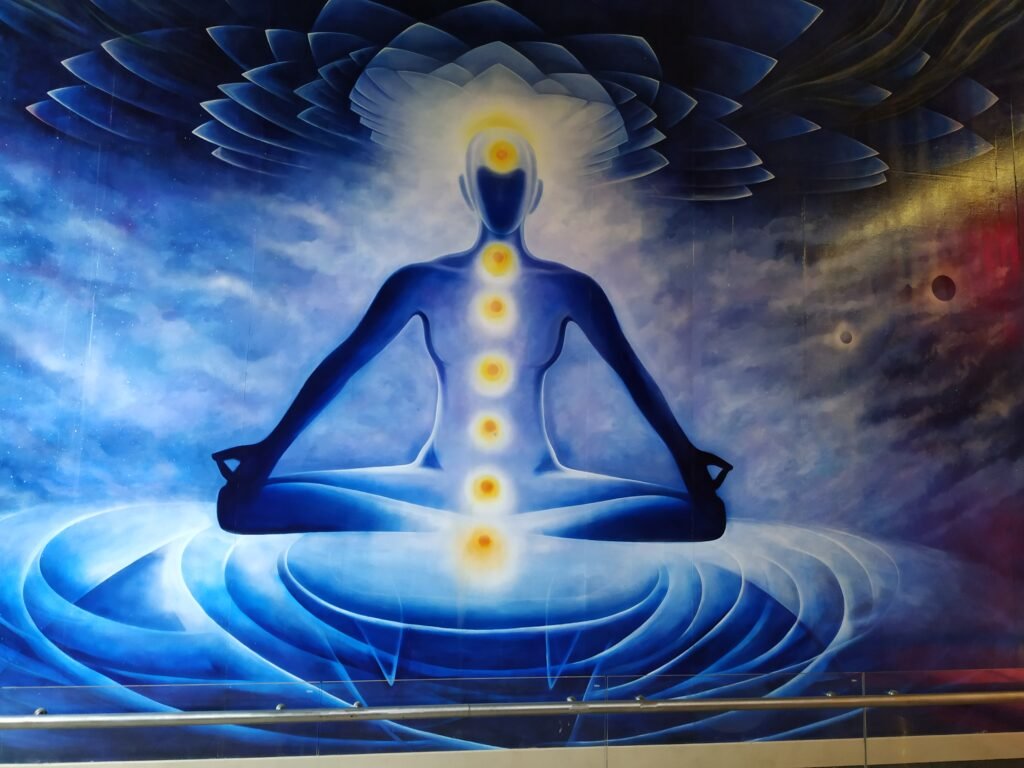Imagine a universe where consciousness isn’t just an accident of evolution, but as fundamental as gravity or electromagnetism. This isn’t science fiction anymore. Scientists and philosophers are seriously exploring whether awareness itself might be woven into the fabric of reality.
The question sounds outrageous at first. How could consciousness – something we associate with complex brains and sophisticated thinking – exist throughout the cosmos? Yet mounting evidence from quantum physics, neuroscience, and philosophy suggests our understanding of consciousness may be far too narrow.
The Fifth Fundamental Force

According to certain theorists, a more thorough explanation of reality could be achieved by including Consciousness, as the 5th fundamental force of nature. Physics currently recognizes four fundamental forces: gravity, electromagnetism, and the strong and weak nuclear forces.
Recognizing consciousness as a basic force gives us a dramatic rethinking of both physics and philosophy of mind. It suggests a more comprehensive vision of the universe, in which mind and matter are inextricably linked.
This radical proposition challenges everything we thought we knew about reality. Instead of consciousness emerging from complex neural networks, it might be a basic property of the universe itself – as fundamental as mass or electric charge.
Quantum Mechanics Meets Awareness

Speaking to New Scientist, Neven outlined experiments and theories suggesting consciousness might emerge from quantum phenomena, such as entanglement and superposition, within the human brain. Google’s Hartmut Neven, leading quantum artificial intelligence research, believes quantum computers might help us understand how consciousness works.
He believes quantum phenomena may underlie the binding problem in neuroscience – the challenge of understanding how the brain integrates sensory inputs into a unified experience. “We can solve this by proposing that entanglement between qubits creates a unified conscious experience,” Neven said. “Entanglement is the only true binding agent we have in physics, as it allows for the creation of holistic states where individual components are fundamentally interconnected.”
Recent experiments have provided intriguing support for quantum theories of consciousness. By demonstrating that drugs affecting microtubules within neurons delay the onset of unconsciousness caused by anesthetic gases, the study supports the quantum model over traditional classical physics theories. This quantum perspective could revolutionize our understanding of consciousness and its broader implications, potentially impacting the treatment of mental illnesses and our understanding of human connection to the universe.
Integrated Information Theory: Making Consciousness Measurable

Integrated information theory (IIT) proposes a mathematical model for the consciousness of a system. It comprises a framework ultimately intended to explain why some physical systems (such as human brains) are conscious, and to be capable of providing a concrete inference about whether any physical system is conscious, to what degree, and what particular experience it has.
Developed by neuroscientist Giulio Tononi, IIT attempts to quantify consciousness using a mathematical measure called Phi. The five postulates of consciousness they decided on are: existence, composition, information, integration, and exclusion.
IIT has been shown to prove that a person, when asleep, has a much lower φ value than when they are awake, which seems intuitive. But what IIT has also proved is that different people have different φ values, raising ethical questions related to people’s varying degrees of consciousness.
The theory suggests consciousness isn’t binary – it exists on a spectrum. This has profound implications for understanding everything from sleep states to potential artificial consciousness.
Panpsychism: Consciousness as Universal Property

Panpsychism holds that mind or a mind-like aspect is a fundamental and ubiquitous feature of reality. It is sometimes defined as a theory in which “the mind is a fundamental feature of the world which exists throughout the universe”.
This ancient philosophical idea has gained surprising modern support. Recent interest in the hard problem of consciousness and developments in the fields of neuroscience, psychology, and quantum mechanics have revived interest in panpsychism in the 21st century because it addresses the hard problem directly.
William James, the father of American psychology, was a panpsychist, as was the celebrated British mathematician Alfred North Whitehead; the Nobel Prize-winning physicist Max Planck once remarked in an interview, “I regard consciousness as fundamental.”
Rather than seeing consciousness as something that mysteriously emerges from complex arrangements of matter, panpsychism proposes it was there all along – we just hadn’t recognized it.
The Hard Problem of Consciousness

As philosopher Colin McGinn put it in a 1989 paper, “Somehow, we feel, the water of the physical brain is turned into the wine of consciousness.” Philosopher David Chalmers dubbed this issue the “hard problem” of consciousness.
The hard problem isn’t just figuring out how the brain works – it’s explaining why we have subjective experiences at all. Why is there something it’s like to see red or taste chocolate? Physical science can describe the neural correlates of these experiences, but not why they feel like anything.
Philosophers of science have realized that physical science, for all its richness, is confined to telling us about the behavior of matter, what it does. Physics tells us, for example, that matter has mass and charge. These properties are completely defined in terms of behavior – things like attraction, repulsion, resistance to acceleration. Physics tells us absolutely nothing about what philosophers like to call the intrinsic nature of matter: what matter is in and of itself. Consciousness, for the panpsychist, is the intrinsic nature of matter.
This perspective suggests consciousness might be what matter actually is, beneath all the mathematical descriptions of its behavior.
Consciousness as Information Integration

According to the theory, consciousness corresponds to the capacity of a system to integrate information. This claim is motivated by two key phenomenological properties of consciousness: differentiation – the availability of a very large number of conscious experiences; and integration.
Think about your current experience. You’re simultaneously aware of these words, background sounds, your bodily sensations, and countless other inputs – yet they form a unified conscious experience rather than separate streams of awareness. This integration might be the key to understanding consciousness itself.
In this view, experience, that is, information integration, is a fundamental quantity, just as mass, charge or energy are. It follows that any physical system has subjective experience to the extent that it is capable of integrating information, irrespective of what it is made of.
This suggests consciousness isn’t limited to biological brains. Any sufficiently integrated system – from artificial intelligence to perhaps even natural phenomena – could possess some form of awareness.
Relativistic Views of Consciousness

Dr. Lahav and Dr. Neemeh recently published a new physical theory in the journal Frontiers in Psychology that claims to solve the hard problem of consciousness in a purely physical way. According to the authors, when we change our assumption about consciousness and assume that it is a relativistic phenomenon, the mystery of consciousness naturally dissolves.
This revolutionary approach treats consciousness like other relativistic phenomena in physics. Just as velocity appears different to different observers, consciousness might be observer-dependent. According to the new theory, the brain doesn’t create our conscious experience, at least not through computations. The reason that we have conscious experience is because of the process of physical measurement.
The theory suggests consciousness emerges from the interaction between observer and observed – it’s not contained in any single system but arises from the relationship between systems measuring each other.
The Universal Theory Quest

The concept of universality, often assumed in physics, posits that the fundamental laws of nature are consistent and apply equally everywhere in the universe and remain constant over time. This assumption is crucial in science, acting as a guiding principle for developing and testing theories. When applied to theories of consciousness, universality can be defined as the ability of a theory to determine whether any fully described dynamical system is conscious or non-conscious.
Scientists are working toward a universal theory of consciousness – one that could determine whether any system, biological or artificial, possesses awareness. The importance of universality originates from the consideration that given that consciousness is a natural phenomenon, it could in principle manifest in any physical system that satisfies a certain set of conditions whether it is biological or non-biological.
Such a theory would revolutionize our understanding of consciousness and could help us recognize awareness in unexpected places throughout the universe.
Conclusion

The idea that consciousness might be a fundamental force of nature represents a profound shift in how we understand reality. From quantum mechanics to information theory, multiple lines of research are converging on the possibility that awareness isn’t an accident – it’s built into the universe itself.
This doesn’t mean every grain of sand is having complex thoughts. Rather, consciousness might exist on a vast spectrum, from the simple experiences of fundamental particles to the rich awareness of human minds. We’re only beginning to explore this possibility, but the implications are staggering.
If consciousness truly is a force of nature, it changes everything: our relationship to the cosmos, our understanding of artificial intelligence, and perhaps most importantly, our sense of what it means to be aware in an aware universe. What do you think – could consciousness be as fundamental as gravity itself?




